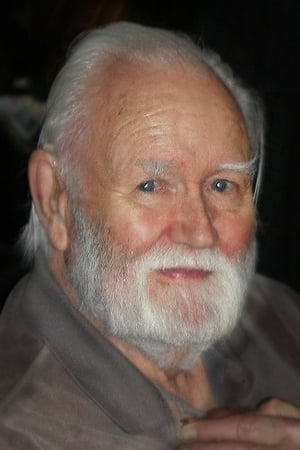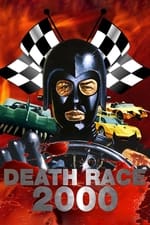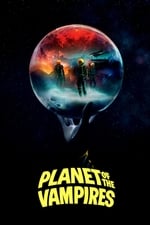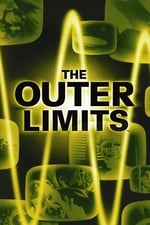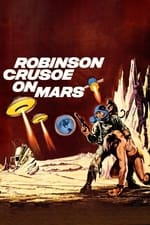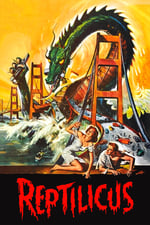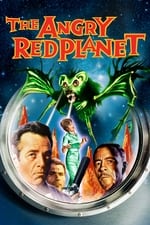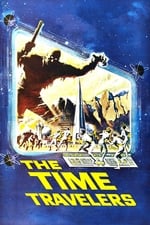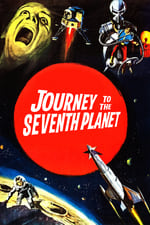Personal Info
Known For Writing
Known Credits 16
Gender Male
Birthday September 17, 1917
Day of Death March 14, 2015 (97 years old)
Place of Birth Copenhagen, Denmark
Also Known As
- -
Content Score
100
Yes! Looking good!
Login to report an issue
Biography
From Wikipedia, the free encyclopedia
Ib Jørgen Melchior (born September 17, 1917) is a novelist, short story writer, film producer, film director, and screenwriter of low-budget American science fiction movies, most of them released by American International Pictures. He was born in Copenhagen, Denmark.
Melchior's novels include Code Name: Grand Guignol, Eva, The Haigerloch Project, The Marcus Device, Order of Battle: Hitler's Werewolves, Sleeper Agent, The Tombstone Cipher and The Watchdogs of Abaddon.
His non-fiction includes the books Quest: Searching for Germany's Nazi Past (with co-author Frank Brandenburg) and Lauritz Melchior: The Golden Years of Bayreuth, the latter a biography of his father, the opera singer and movie star Lauritz Melchior. With his wife, L.A. architect Cleo Baldon, Ib Melchior wrote the non-fiction books Reflections on the Pool: California Designs for Swimming and Steps & Stairways.
Melchior also wrote Hour of Vengeance, a play based on the Viking story of Amled that also inspired William Shakespeare's play Hamlet. In 1982, it was awarded the Hamlet Award for best playwriting by the Shakespeare Society of America.
As a filmmaker, Melchior wrote and directed The Angry Red Planet (1959) and The Time Travelers (1964). His most high profile credit was as co-screenwriter (along with John C. Higgins) of Byron Haskin's critically acclaimed Robinson Crusoe on Mars (1964). He cowrote the screenplays for two U.S.-Danish coproductions, Reptilicus (1961) and Journey to the Seventh Planet (1962), and provided the English language script for Mario Bava's Planet of the Vampires (1965).
For television, he wrote "The Premonition" episode for the second season of the original The Outer Limits series. The episode was broadcast in 1965.
Melchior's short story The Racer was adapted as Paul Bartel's cult film favorite, Death Race 2000 (1975), starring David Carradine and Sylvester Stallone and produced by Roger Corman. It was later remade as Death Race (2008), starring Jason Statham and Joan Allen, directed by Paul W.S. Anderson and produced by Tom Cruise.
He claims to be the creator of the original idea upon which Irwin Allen based his television series Lost in Space, although he never received onscreen credit for this. In 1960, Melchior had created an outline for a series he called "Space Family Robinson", which later became a Gold Key comic book. Ed Shifres' book Lost in Space: The True Story is a detailed documentation of how Irwin Allen allegedly plagiarized Melchior's script, with the two outlines presented side by side.
Decades later, Prelude Pictures hired Melchior as a consultant on its Lost in Space feature film adaptation, but later sold his contract to New Line Cinema, its production partner on the film. New Line agreed to pay Melchior a $75,000 production bonus and $15,000, but refused him his contractually promised two percent of the producer's gross receipts from the film.
Melchior, who is a decorated war hero of World War II, has also been involved in a long legal battle involving his father's estate, Chossewitz in Brandenburg, Germany, which was confiscated by the communist government of East Germany and never returned.
In 1965, he was dubbed Knight Commander of the Militant Order of Saint Brigitte of Sweden.
In 1976, the Academy of Science Fiction, Fantasy and Horror Films awarded Ib Melchior its Golden Scroll Award to Merit for Outstanding Achievement.
Biographies include Ib Melchior: Man of Imagination by Robert Skotak, as well as Melchior's own autobiography Case by Case: A U.S. Army Counterintelligence Agent in World War II.
Description above from the Wikipedia article Ib Melchior, licensed under CC-BY-SA, full list of contributors on Wikipedia.
From Wikipedia, the free encyclopedia
Ib Jørgen Melchior (born September 17, 1917) is a novelist, short story writer, film producer, film director, and screenwriter of low-budget American science fiction movies, most of them released by American International Pictures. He was born in Copenhagen, Denmark.
Melchior's novels include Code Name: Grand Guignol, Eva, The Haigerloch Project, The Marcus Device, Order of Battle: Hitler's Werewolves, Sleeper Agent, The Tombstone Cipher and The Watchdogs of Abaddon.
His non-fiction includes the books Quest: Searching for Germany's Nazi Past (with co-author Frank Brandenburg) and Lauritz Melchior: The Golden Years of Bayreuth, the latter a biography of his father, the opera singer and movie star Lauritz Melchior. With his wife, L.A. architect Cleo Baldon, Ib Melchior wrote the non-fiction books Reflections on the Pool: California Designs for Swimming and Steps & Stairways.
Melchior also wrote Hour of Vengeance, a play based on the Viking story of Amled that also inspired William Shakespeare's play Hamlet. In 1982, it was awarded the Hamlet Award for best playwriting by the Shakespeare Society of America.
As a filmmaker, Melchior wrote and directed The Angry Red Planet (1959) and The Time Travelers (1964). His most high profile credit was as co-screenwriter (along with John C. Higgins) of Byron Haskin's critically acclaimed Robinson Crusoe on Mars (1964). He cowrote the screenplays for two U.S.-Danish coproductions, Reptilicus (1961) and Journey to the Seventh Planet (1962), and provided the English language script for Mario Bava's Planet of the Vampires (1965).
For television, he wrote "The Premonition" episode for the second season of the original The Outer Limits series. The episode was broadcast in 1965.
Melchior's short story The Racer was adapted as Paul Bartel's cult film favorite, Death Race 2000 (1975), starring David Carradine and Sylvester Stallone and produced by Roger Corman. It was later remade as Death Race (2008), starring Jason Statham and Joan Allen, directed by Paul W.S. Anderson and produced by Tom Cruise.
He claims to be the creator of the original idea upon which Irwin Allen based his television series Lost in Space, although he never received onscreen credit for this. In 1960, Melchior had created an outline for a series he called "Space Family Robinson", which later became a Gold Key comic book. Ed Shifres' book Lost in Space: The True Story is a detailed documentation of how Irwin Allen allegedly plagiarized Melchior's script, with the two outlines presented side by side.
Decades later, Prelude Pictures hired Melchior as a consultant on its Lost in Space feature film adaptation, but later sold his contract to New Line Cinema, its production partner on the film. New Line agreed to pay Melchior a $75,000 production bonus and $15,000, but refused him his contractually promised two percent of the producer's gross receipts from the film.
Melchior, who is a decorated war hero of World War II, has also been involved in a long legal battle involving his father's estate, Chossewitz in Brandenburg, Germany, which was confiscated by the communist government of East Germany and never returned.
In 1965, he was dubbed Knight Commander of the Militant Order of Saint Brigitte of Sweden.
In 1976, the Academy of Science Fiction, Fantasy and Horror Films awarded Ib Melchior its Golden Scroll Award to Merit for Outstanding Achievement.
Biographies include Ib Melchior: Man of Imagination by Robert Skotak, as well as Melchior's own autobiography Case by Case: A U.S. Army Counterintelligence Agent in World War II.
Description above from the Wikipedia article Ib Melchior, licensed under CC-BY-SA, full list of contributors on Wikipedia.
Writing
|
|||||||||
|
|||||||||
|
|||||||||
|
|||||||||
|
|||||||||
|
|||||||||
|
|||||||||
|
|||||||||
|
|||||||||
|
Directing
|
|||
|
|||
|
Acting
|
|||
|
Editing
|
